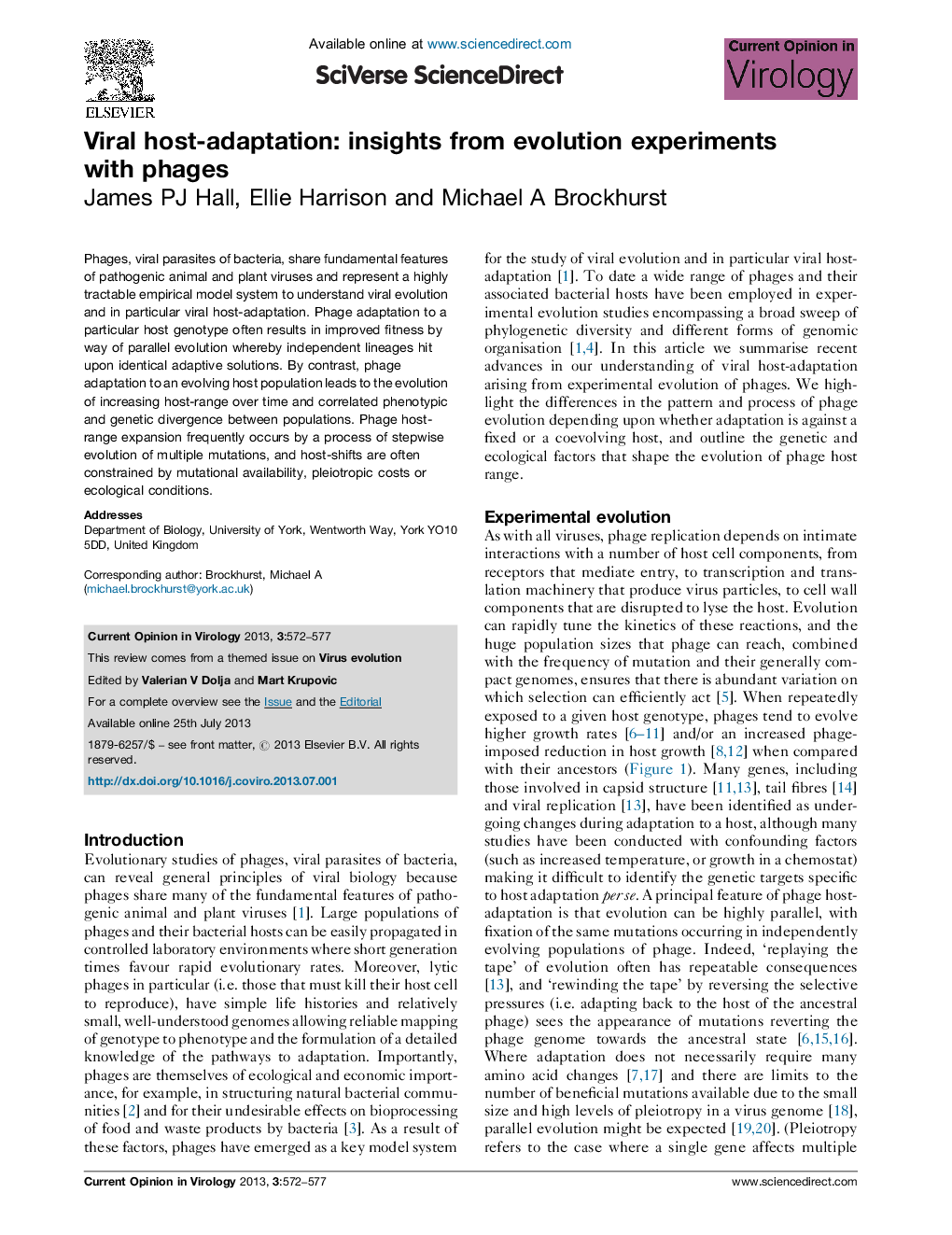| Article ID | Journal | Published Year | Pages | File Type |
|---|---|---|---|---|
| 5806898 | Current Opinion in Virology | 2013 | 6 Pages |
â¢Phage adaptation to a particular host genotype often results in improved fitness by way of parallel evolution.â¢Phage adaptation to an evolving host population leads to the evolution of increasing host-range and divergence between populations.â¢Phage host-range expansion frequently occurs by a process of stepwise evolution of multiple mutations.â¢Host-shifts are often constrained by mutational availability, pleiotropic costs or ecological conditions.
Phages, viral parasites of bacteria, share fundamental features of pathogenic animal and plant viruses and represent a highly tractable empirical model system to understand viral evolution and in particular viral host-adaptation. Phage adaptation to a particular host genotype often results in improved fitness by way of parallel evolution whereby independent lineages hit upon identical adaptive solutions. By contrast, phage adaptation to an evolving host population leads to the evolution of increasing host-range over time and correlated phenotypic and genetic divergence between populations. Phage host-range expansion frequently occurs by a process of stepwise evolution of multiple mutations, and host-shifts are often constrained by mutational availability, pleiotropic costs or ecological conditions.
